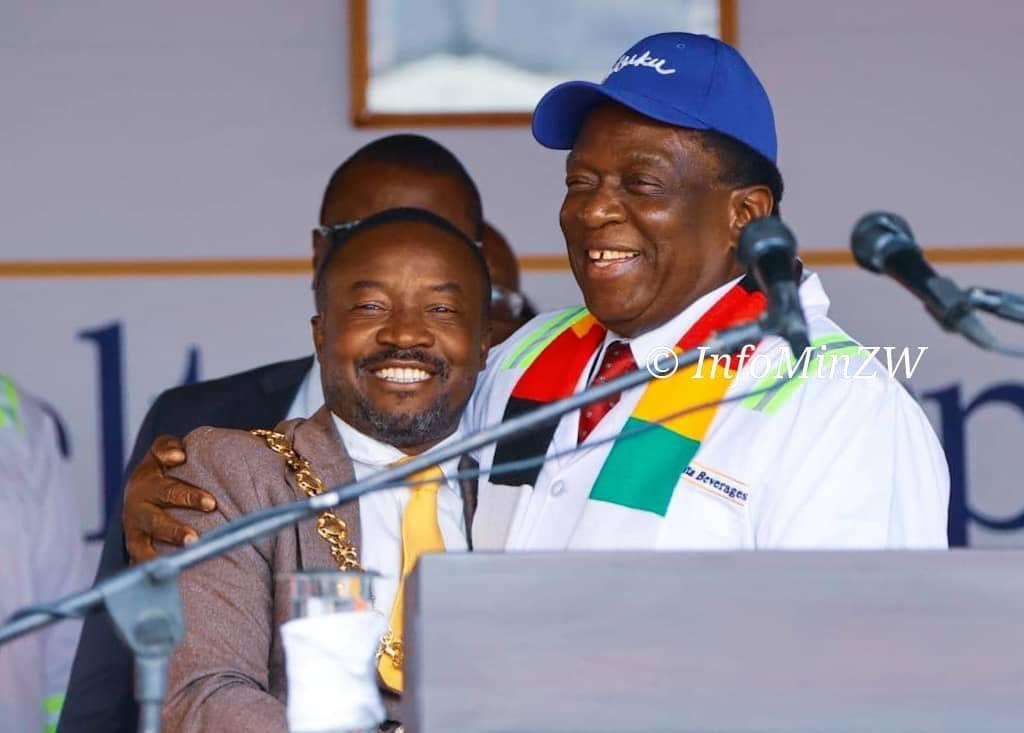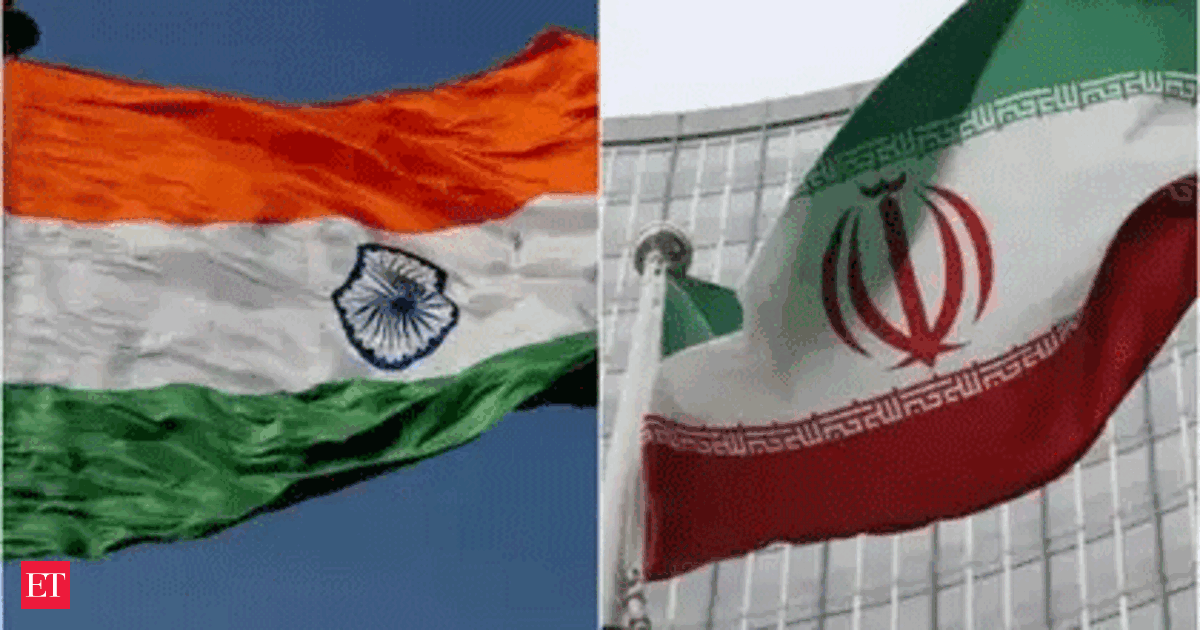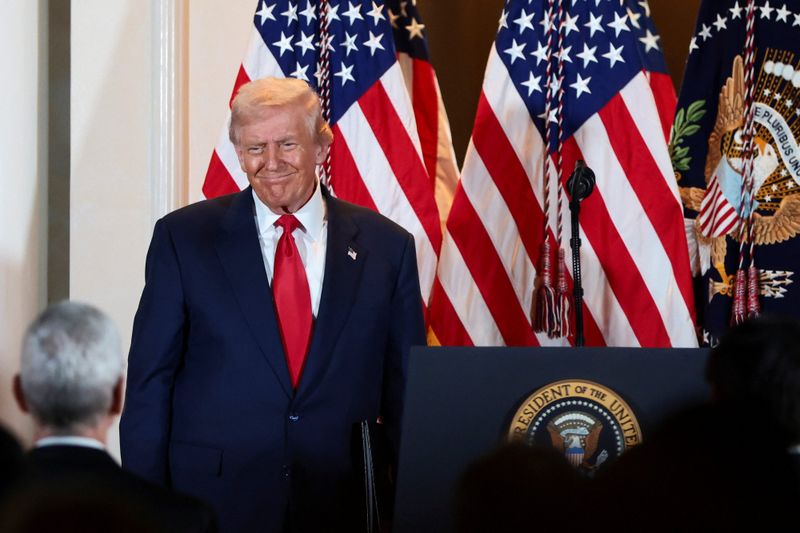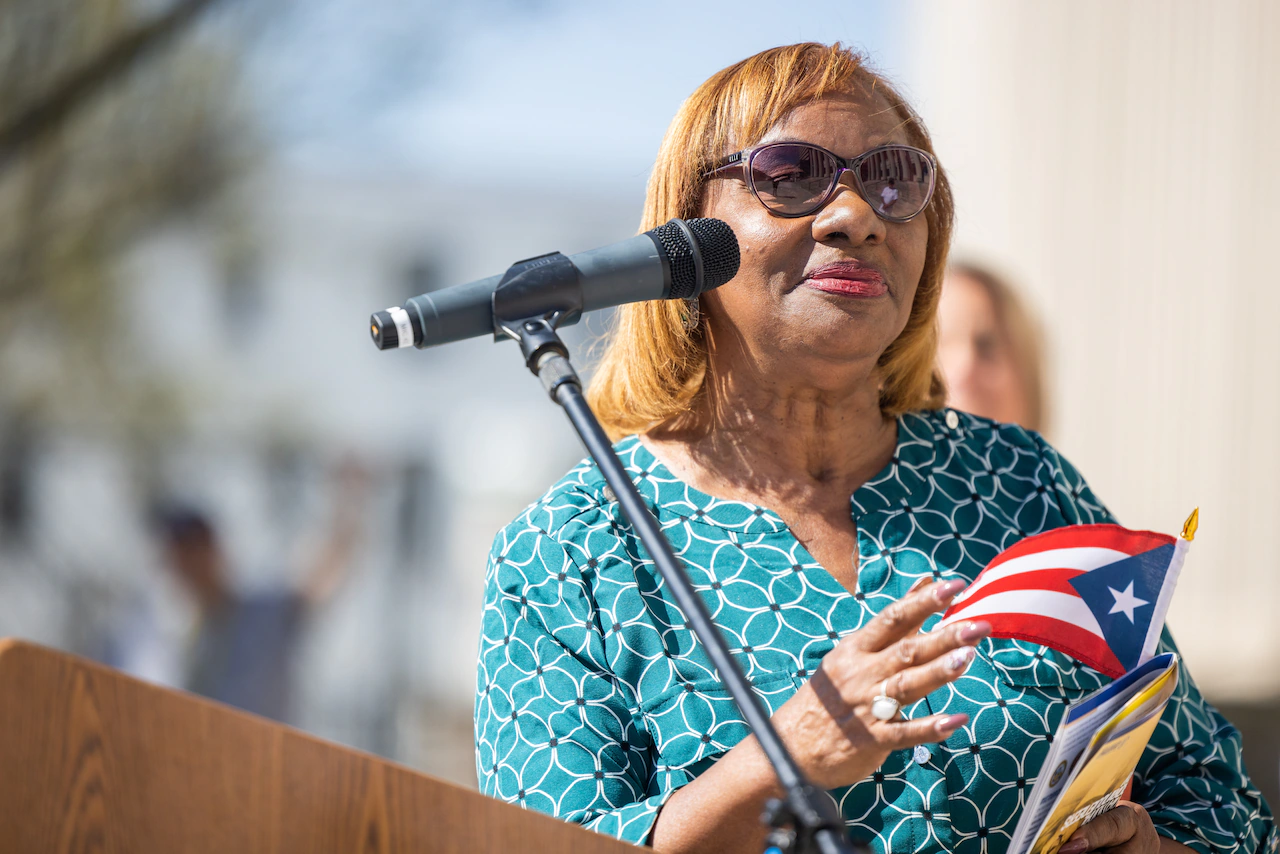Copyright nehandaradio

Recently, I came across a social media post in which Harare Mayor Jacob Mafume was referred to as “chigananda”, a reference to a clique of allegedly corrupt “dealers”, “tenderpreneurs” and other less-than-esteemed persons said to be associates of President Emmerson Mnangagwa. For Mafume to be named in this company is clearly cynical, but then the bigger picture is just how local politics has evolved. For the opposition, one could say this is how low it has sunk. This October marks 20 years since the first split of Zimbabwe’s once-formidable opposition, the Movement for Democratic Change (MDC). The party split for the first time having been formed only six years earlier, in September 1999, as a large church born of the marriage of labour, student movement, civil society and white farmers. Although there was an organic movement, which built up in the mid- to late-1990s following the failure and pain of the economic structural adjustment programme (ESAP) – just as what had happened elsewhere in the Third Word – the State accused the new party as being founded and funded by Western countries. MDC enjoyed early successes. It was the wind beneath the sails of the campaign for the rejection of the new constitution in a February 2000 referendum, and subsequent shocking electoral gains against Zanu-PF. Hence, the party announced itself to be the rival that the ruling had not encountered since Independence in 1980. And the world took notice. The MDC, and its leader Morgan Tsvangirai, became global symbols for democracy – or so they were billed – with huge sympathy, support and funding from Western capitals. At the same time, Robert Mugabe the once-revered liberation fighter, greatly reduced in stock, becoming a pariah following the land reform programme. The “fast track” land reform programme was in part motivated by the referendum rejection and success of the “no” campaign, backed by white farmers. Western countries accused Mugabe of gross human rights abuses and imposed economic sanctions to hasten his removal from office. At the turn of the century, it was largely expected that Zimbabwe was ready for change. Only it didn’t happen. A quarter of a century later, many things have become clearer, although some as mud. Such as the irony in the fact that the two leading opposition figures in the period of the past 25 years – Tsvangirai and later on his successor, Nelson Chamisa – have turned out to be deeply flawed characters that may have damaged the opposition and its chances more than many now grudgingly accept. Former US Ambassador to Zimbabwe, Christopher Dell, and Philani Zamchiya, a leading UK-based Zimbabwean academic once passed unflattering comments on the leadership capacities of Tsvangirai and Chamisa, respectively, that would later turn out to be so prescient. It is a harsh judgment of history: In future accounts, requiems and long postmortems about what went wrong with the opposition in Zimbabwe, the flaws in Tsvangirai and Chamisa may be mentioned with the same quality of regret as people wondering as to whether Zimbabwe would have been better off with Joshua Nkomo as the leader of the newly-independent State of Zimbabwe when we won the liberation struggle in 1980. [That is, whether it would have been better to have Ndebele politicians, Welshman Ncube and Thokozani Khupe as leaders of the opposition at critical junctures, rather than their hugely popular Shona counterparts that overshadowed and outmanoeuvred them, sometimes violently.] Or how Zimbabweans could have demanded a fundamentally new political system following Operation Restore Legacy that removed Mugabe after 37 years. In 2025, the once lofty promise of the opposition is forgotten. Mafume: metamorphosis and a political metaphor Jacob Mafume is a lawyer, administrator and strategist who worked at USAid before joining the office of then Prime Minister Morgan Tsvangirai during the inclusive Government. Mafume was born on the September 10, 1976, in Marondera to Isaac Mafume and the late Maina Maoneyi Mafume Nee Muvuti of Mafuwa Village, Bondolfi in Masvingo. His parents were staunch SDA members. Mafume attended Riverside Primary School In Gweru before he joined Gokomere High School for his high school education. While studying at the University of Zimbabwe, he was the students’ union Secretary General, where his political trajectory was shaped. He worked for various Civic society organizations locally and regionally. Since his entry onto the big stage, he has played a key role in the opposition over the years, in terms of strategy, external engagement and funding, He too, has survived all these tumultuous years of ebb and tide of opposition politics. On a couple of occasions in the past two decades, he has been caught on the “wrong side” of the fractious, personality-centred politics. Mafume was elected councilor in 2018 under the MDC-Alliance, and 2023 on the CCC ticket, which enabled him to be elected Mayor for the first time in 2020. This is a position that he suffered for, being in control of that which the ruling party, Zanu-PF, cannot have, with the opposition running urban councils since their entry into the electoral field. Just like his predecessors such as Elias Mudzuri, Ben Manyenyeni and Herbert Gomba, Mafume was arrested multiple times, spent months in jail and was suspended and blocked from performing his duties. Until it became no more. Today, Mafume is seen as having cosied up to his former tormentors, the Zanu-PF government – the party of Robert Mugabe – and is now at the forefront of facilitating some of the ruling party’s projects in Harare. These include the GeoPomona Waste to Energy project, the acquisition of fire tenders from Belarus and now the US$138 million water reticulation project being undertaken by a company owned by Zanu-PF legislator, Farai Jere, which will see the rollout of prepaid water meters, among other deliverables. Mafume has transformed from a classical stone-throwing opposition councillor and mayor to a collaborator – or, to put it more sympathetically – a partner of the Government in implementing various projects. He has also been accorded a place at the high table during State events, something that was taboo for opposition a few years ago. Concurrently, President Mnangagwa appears to have extended a paternalistic relationship to Mafume – in the political sense, at least – and on one occasion said he would ensure that the latter would stay on as Mayor of the capital, with the protection and patronage of Zanu-PF. This metamorphosis is yet to be fully understood. For many, the Mayor is in it for personal, selfish reasons; and this is why a good number of people are unhappy and uncomfortable with his new-found love with the ruling party. To all intents and purposes, the accusation that he is a “chigananda” stems from this cynicism, an accusation that Mafume has decided to “go to bed” with Zanu-PF for personal aggrandizement, through enabling alleged looting of State funds through the above-named projects. But how fitting are the “zvigananda” robes on him? Or is Mafume himself a political metaphor of an era? A man, a moment in history What to make of Mafume is entirely up to one’s judgment, although my main thesis in this piece is that he could hold the key to something new in local politics. On a few occasions that I have spoken to Mafume in my capacity as a journalist – from the splits during Tsvangirai’s time to date – he has struck me as a sincere politician in democratic principle. Particularly, he hates dictatorship and “big man politics”, which he perhaps may resist the temptation of pursuing in future. He is also an astute individual, which has allowed him to survive this far, and occupy the office that he is in. Incredibly, next year, Mafume would be Harare’s longest serving Mayor post-2000. He has has survived where more fancied politicians have failed or have outright been ruined by the Government, which is often accused of wielding the law and its hospitality to break down and even eliminate opponents. I have been privileged to have some friendly discussions with him in recent times. In his defence, Mafume’s changed attitude can be understood in the context of him seeking to do a job that he was elected to do: to ensure that rubbish is collected – done through the GeoPomona; and water once again runs in the urban taps and sewerage is fixed – done through the latest deal on water reticulation. These are deals that have material benefits to residents in terms of service delivery, although they are coming through Government. Mafume had a choice to refuse or to cooperate. He chose to cooperate – and will likely do so on many other projects that will come in future from Zanu-PF (Government). There is a political rationale behind this. He tells me that while in the opposition, one of the key aspirations was to occupy decision making positions or to participate in the governance of the country through various mechanisms. The opposition’s control of urban councils was seen as one such mechanism, whereby the opposition would be able to make a difference publicly and deliver on their promises to the people. He tells me that it is THIS philosophy that has made him choose to work with the Government, which is bringing business to his city and facilitating deals that enable him to deliver services to the residents of Harare. In his reasoning, he cannot object to partners given him by central Government to work with on government projects, any less than he can question how USAid or any Western agency chooses an implementing or funding partners for projects which benefit Harare. The irony is that Mafume may not be fully understood even by some of his own councillors who would want the maintenance of a disruptive or confrontational opposition culture. At the same time, there are people across the political divide who do not want to see things work, and Harare being a functional local authority that coheres and coexists with central Government. Which is why it becomes easier for some people to accuse Mafume of belonging to a Zanu-PF faction. Towards post-opposition? With Chamisa in self-imposed political exile, could Mafume play a role that can reshape the politics of the country? Mafume is in charge of the capital city, and ordinarily this should come with lots of political power. Can Mafume use his office to declare openly that he is willing to work with Government and the ruling party to change the politics of the country and to serve the people in Harare and beyond? There is a kind of stasis and paralysis in the opposition that stems from the declared and undeclared fear that if someone presumably goes against Nelson Chamisa, they are dead politically. If Mafume were to seek a new path politically, at least even limited to declaring to working together with the Zanu-PF government in Harare, the immediate fear would be a backlash against him from the opposition rump that supports Chamisa. Yet, quite honestly, Mafume’s political and personal lives are no longer wholly dependent on Chamisa. Broadly speaking, Mafume and dozens of legislators who are currently serving in Parliament and did not resign from CCC, can choose to chart a new political path based on the philosophy of working for the people in public offices. They do not have a proper political home, and hanging onto the CCC is hiding in plain sight; an inveiglement people have been either too tired or unconcerned to throw off. At the same time, in the larger scheme of things every serious political watcher knows that chances of an election in 2028 are scant and that the interregnum could – and should – give birth to something new, even grotesquely ugly. This should at least give both Mafume and the legislators something of a purpose: essentially this would mean a more structured approach to dealing with Zanu-PF, and defining zones of autonomy. Looking back, the opposition’s participation in the GNU should have been the height of this strategy of gaining control of certain political zones, and ultimately, “taking power from within”, only for Tsvangirai and co. to lose sight of the ball and be defeated soundly by Mugabe in the 2013 elections when they clearly had one hand on the trophy. After the 2023 elections, President Mnangagwa – no doubt seeking the fillip and legitimacy of consociational politics – again extended an opportunity for the opposition to become part of national governance with Chamisa reportedly offered a good deal that someone at the time branded as “too good to refuse”. For a time, the mechanism of the Political Actors Dialogue (Polad) – which contained a dozen or so small parties that had participated in the elections worked, but was ultimately undone by the lack of participation of Chamisa. At the same time, another outfit, the Presidential Advisory Committee (PAC), which comprised eminent citizens from business, academic and other spheres gave some promise, but ultimately collapsed. Forging a new post-opposition politics has been an imperative. Zimbabweans – those in politics not least – are tired of endless cycles of destabilising elections that yield the same results. A “Gen Z” rebellion, which recently gave the likes of Madagascar and Nepal new governments, is a huge impossibility, outside a great force of nature. Perhaps an internal rapture like that of 2017 could be considered to hang above the air like the Axe of Damocles, but that it will strike is not guaranteed. Even then, another “soft coup” would want civilian apparel and appendage to gain legitimacy fa Ultimately, a stable, inclusive government which may even not be an offshoot of elections is likely to be accepted: a previous call for an “election Sabbath” by Churches was not roundly dismissed. It means a GNU 2.0 would not be seen as inherently evil, either. Meanwhile, as I was writing this I came across a poster advertising a press conference to be addressed by some prominent opposition figures such as Job Sikhala, Tendai Biti, Jameson Timba, Jacob Ngarivhume, Munyaradzi Gwisai, Obert Masaraure and a couple of unfamiliar faces. The presser is also set to be addressed by war veteran and Church representatives. Commenting on the development, prominent journalist Hopewell Chin’ono posted on social media that, “It seems the days of not having an opposition in Zimbabwe are coming to an end…” Or are they? The line up alone seems to betray an attempt to push back the hands of time and remake the opposition using a template set 25 years ago and overtaken by various events, which even the participants would be wiser to acknowledge. *Tichaona Zindoga is a journalist, strategic communication expert and director of a local think tank, Ruzivo Media and Resource Centre



